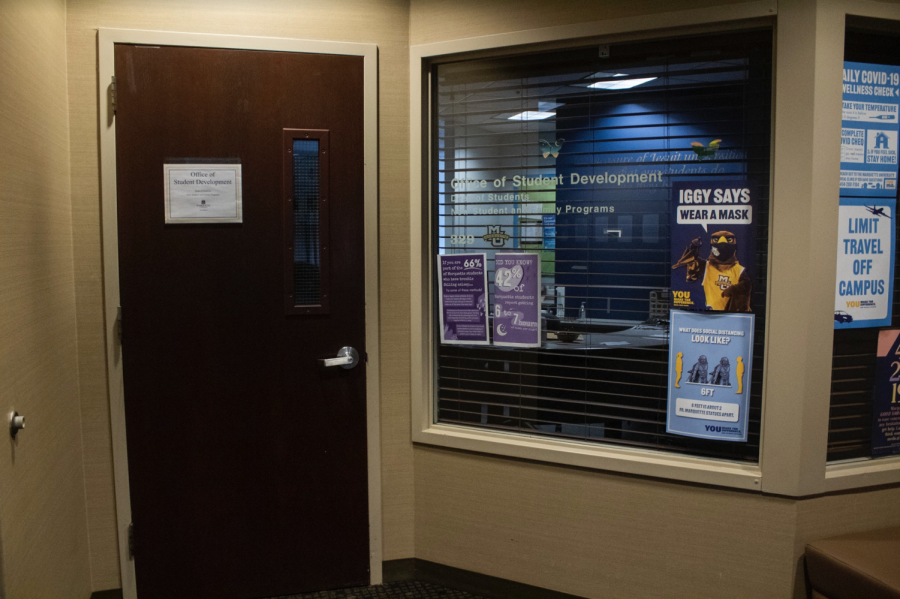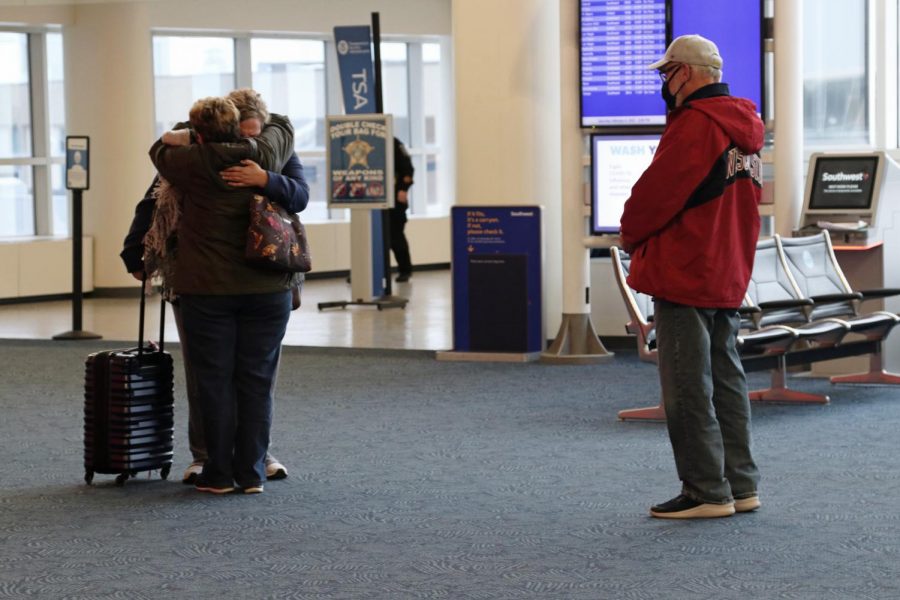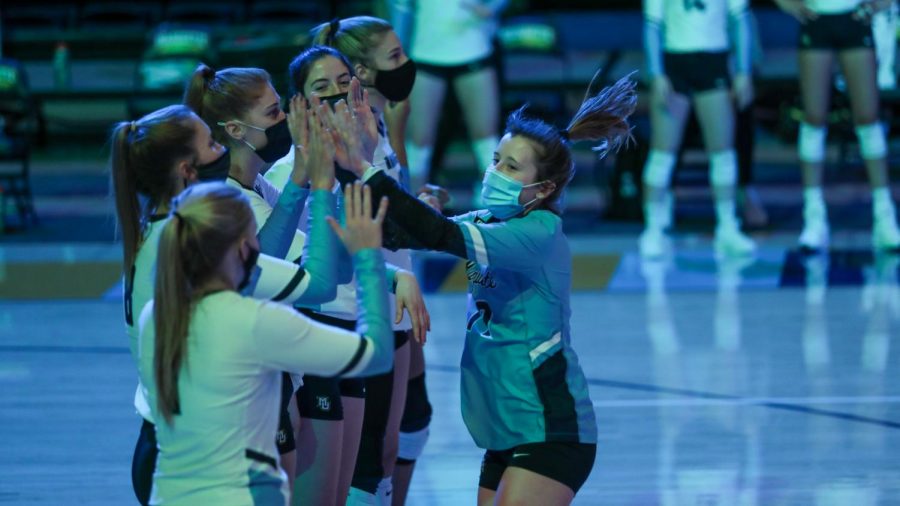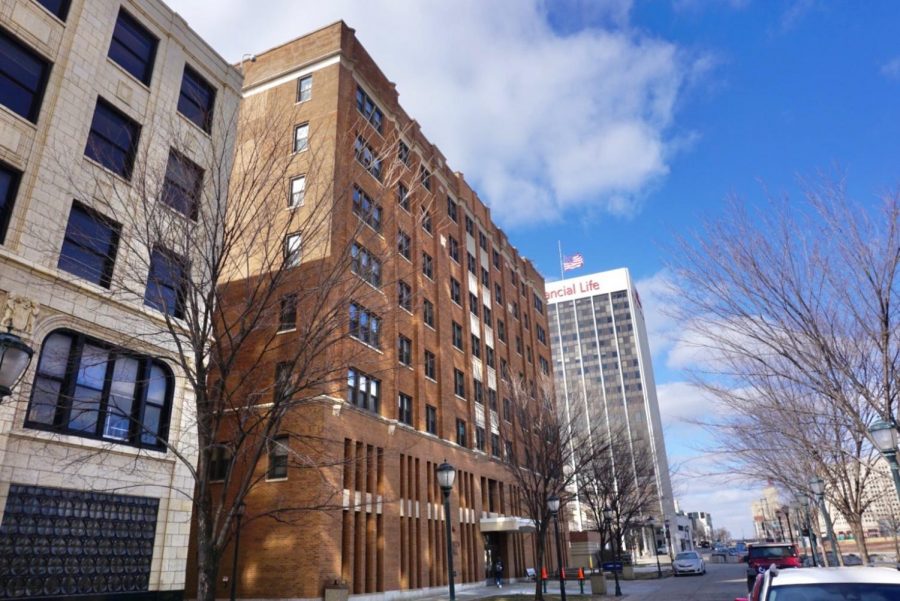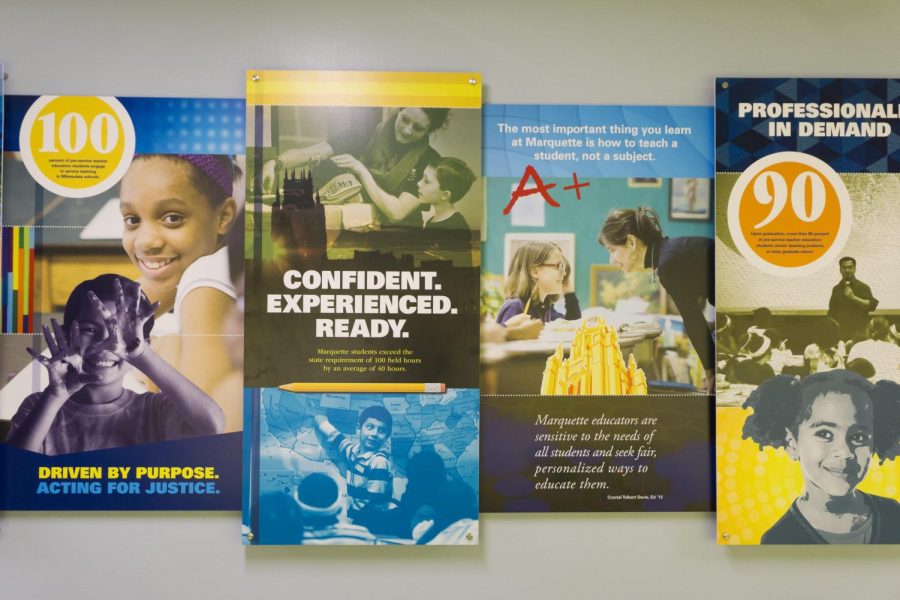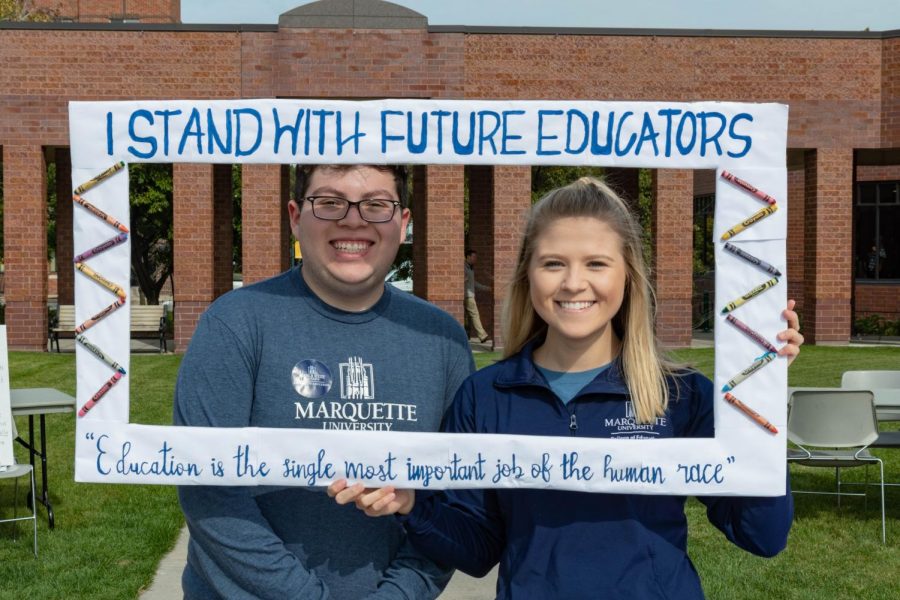This year, Marquette University’s Summer Priority Advising and Registration Kick-off program earned a new name, SPARK@Home, and looked slightly different as the entire program went online due to COVID-19. SPARK gives new students the opportunity to feel welcomed, adjust to being on campus, register for classes and meet other students, and usually occurs in sessions over the summer and in the beginning of August.
Kelly Neumann, assistant dean for new student and family programs, helps to organize the SPARK program, Orientation and family weekend for first-year students each year.
As a result of the program being completely virtual, Neumann said they did not ask students to pay the usual $100 SPARK fee to help with program expenses this year.
“Our SPARK@Home leaders did an excellent job shifting to the virtual format and helped students navigate the technology,” Neumann said in an email. “Obviously, this wasn’t the ideal way we wanted to engage with our new students and their families, but we were able to help the students successfully enroll in courses, meet their peers and get the information about the Marquette community.”
Neumann said one benefit from having a SPARK online was allowing students to adjust to using new technology, including the Safe Colleges platform, Marquette email and other Microsoft softwares. Safe Colleges is an online training program where students learned about COVID-19 safety and regulations specific to Marquette. Microsoft Bookings also allowed students to set up individual appointments with a college representative if they needed additional advising or guidance during course registration.
She said all students were able to attend a session in June, rather than waiting until August if they lived far from campus, and students had smaller group meetings with their SPARK@Home leader, with five to seven other students compared to 15 to 25 students in previous years. In the past, there are normally six SPARK sessions, with five in June and one in August.
This year, SPARK had six different sessions throughout the month of June.
Neumann said family programming was recorded and available online for those who were not available during their student’s session. Honors students were also able to attend the first SPARK@Home Session with others in that program.
Marino said they are hoping to make SPARK more holistic next summer, which she believes will be possible given how much time they will have to prepare for it compared to last year.
She said SPARK 2020 did not feature any family-specific programming, which was a first for the program in our department.
“I am hopeful that we will be able to include that this year, along with supporting a more interactive experience for our new students,” Marino said in an email.
Hannah Jablonowski, a junior in the College of Education and a SPARK Leader for the past two years, said her experience leading a virtual SPARK came with many ups and downs.
“SPARK is such a great opportunity for incoming students to not only familiarize themselves with campus, but to interact and create connections with their future classmates,” Jablonowski said. “I missed shaking everyone’s hands when I first met them and eating meals with the students and their families. … I think it is more impactful to see and experience social interactions like SPARK in person.”
Aside from the lack of making in-person connections, Jablonowski said there were several good things that came out of the experience as well, including having more free time.
She said students had to be logged on and off Teams from about 8 a.m. to 5 p.m. for both days in their session.
“It seems like a long time, but for SPARK in person you had to be with your students from about the 9 a.m. for check-in time to sometimes as late as 1 a.m. when the Late Night Marquette events ended, and then again for the next day from about 8 a.m. to 1 p.m.,” Jablonowski said. “It was so tiring but I honestly would do absolutely anything to experience that again.”
Jablonowski said another upside to having SPARK online was the students had to complete modules before their SPARK session started.
“Although it was great to have discussions in person and watch the required videos all together in the same room, it really took a lot of the pressure off of the leaders,” she said. “It could sometimes be stressful for student leaders to cover all of the material and having the students do it on their own time was honestly pretty nice.”
Jablonowski said she is also thankful for the connections she made with her fellow members.
“During SPARK in person, you spend three and a half straight weeks on Marquette’s campus with one another,” Jablonowski said. “I met some of my best friends through SPARK in person, and even am now roommates with one of them. … I was nervous that I would not be able to make the same connections as I did when it was in person, but I was so wrong. Our group chats were always active, and still are, and we all truly bonded in a way I could have only hoped.”
Although Jabonowski is also unsure of what next year’s SPARK will look like, she said it would probably be ideal to have a hybrid experience.
“Obviously with COVID-19, many things are in the air,” she said. “We don’t really know any status definite dates of a potential vaccine being released or what our day-to-day lives will even look like a year from now.”
She said she feels a hybrid option would be best because some students may not be comfortable coming back to campus, and others may want to have those in-person interactions.
Neumann said they will take some of what we have learned from past years of SPARK and SPARK@Home sessions to “provide the safest way to get students and families information about the Marquette community, register for fall courses and meet other new students,” regarding next year’s program.
“In early 2021, we will determine what will be best for our new students and consider all options; both in-person and virtual,” Neumann said. “We anticipate having at least one virtual session to replace the August SPARK session and hope to help our new students adjust to life as a Marquette student. We know that SPARK 2021 will look different than 2020 and prior years as we will look for guidance from the campus COVID Response Team to what is best for the campus community. Currently, we do not know the format for 2021.”
As of right now, these changes are just being made specifically for 2021.
This story was written by Skyler Chun. She can be reached at skyler.chun@marquette.edu.

